We lived on the 4th floor, the top floor, in an old East Village apartment building. That place was a miracle: 16-foot ceilings, three bedrooms, two full bathrooms, a dishwasher, and roof access. A New York gem, and we loved it — though “we” was a loose term as the third roommate kept cycling through while Caitlin and I argued who would share the 2nd bathroom next. The three bedrooms looked out over the tail end of 2nd St and onto Houston with a public pool across the street. All summer you could hear children laughing and splashing. Wedged between Avenues C and D, there was the occasional fight, but the same old men in their old chairs sat out front every morning, saying their mildly inappropriate but somehow endearing hellos. That building was home for what was arguably the worst year of my life.
It was 2011, and my mental health was in shambles. No buildings blocked the light into that apartment. It poured in like a spring and on hot summer days, Caitlin would lift every window to let in the sounds of the city, the breeze just high enough to forget the weight of the trash and urine it carried with it. She would crawl out her window onto the fire escape and smoke cigarettes while I crawled deeper into the apartment. I didn’t like being around open windows. I was worried I would throw myself out.
By that year, I’d been through sustained abuse, aggravated sexual assault, wrongful imprisonment, and over a year of ongoing dismissals from doctors for what turned out to be a tumor in my neck. I didn’t trust anyone to take care of me and I didn’t trust my body to take care of itself. Some people handle mounting crises with aplomb, and you could argue I did. I got up every day, put on a cute outfit, got to work on time, did a good job, made friends, wrote a successful blog, and smiled in pictures. I was confident, outgoing, and open to experiences. I just also happened to be miserable.
In New York, I made one attempt to get help. I went to see a doctor based on proximity and insurance, and told her it felt like I was constantly dying. I was having panic attacks on subway platforms, at rooftop parties, in the middle of haircuts, and in the middle of the night. She told me to grow up. I was a Big Girl in the Big City and I needed to get used to it. I didn’t tell her I was afraid to hold steak knives because I couldn’t stop thinking about impaling myself. I also left out the parts where on my walk to work, it felt like I was walking behind myself. I was worried about being locked up, losing my job and my friends and the little semblance of self I still had left.
But I also believed her. I believed that my mental state was my own weakness. It was a frailty in character that was something to be ashamed of. I needed to mind my business and find a solution myself. And in some ways, I did. That was the first time I moved to Colorado.
It seems bombastic to me now, but when I packed up to move to Boulder, I’d never even been to Colorado before. I found an apartment just off the downtown drag in an old woman’s house, with a lockless door between my bedroom and her sewing room. I put an armchair in front of it. The apartment got very little light, surrounded by massive trees that clattered against the house day and night. The old woman wasn’t very nice, but her fading husband sat out front in the sun every day and would wave to me when I hopped onto my new bike to ride to work, a little part of New York following me to the Front Range.
I didn’t ride bikes in New York. I hadn’t really ridden bikes since I was in high school when I would cram what I could of my bike into the trunk of my dingy Mustang, bungee-cording it in so I could take it to the park. But I was broke and I needed a way to get to work, so I bought a bike. Every morning I would stuff my backpack with my laptop, high heels, skirts, scarves, sweaters, makeup, and more so after I transported myself I could transform myself.
A month into my slog to work, the mechanic at the office asked me why I wasn’t riding a road bike — a much more efficient choice than the hardtail mountain bike I’d been so sure would do the trick. My arguments fell flat, and he lent me a bike for the weekend. He taught me how to clip in to the pedals in the parking lot, lending me his son’s old mountain bike shoes, and I rode home on it. I rode it all weekend.
I’m not an athlete’s athlete. I never won a race at a track meet. I was on the volleyball team mostly from the bench. At my best, I can run a 9-minute mile. But something about the bike…
One of my triggers for panic attacks was an elevated heart rate. Anything that surprised me or stressed me out or scared me could catapult me toward panic. I would hold my fingers to my neck, trying to suss out if my heart was still beating — if it was too fast, too irregular, too there. The bike forced a different relationship. I would feel the cadence of my heartbeat speeding up, but I was too wobbly of a rider to take my hand from the handlebars to check it. I would murmur to myself, “you’re exercising, it’s supposed to beat faster, this is what it should be doing, just breathe.” And over time, feeling my heart while I rode became mundane. It’s supposed to beat harder, so let it. I was practicing taking one hand off the bars, then the other. I wanted to be able to ride hands-free like the cool kids. And by the time I could, my heartbeat was an afterthought.
I learned to control a trigger. I found my first solution.
Bikes became the leading feature in my life. I applied to and was accepted into the Rapha Women’s Ambassador Program. I was their beginner, a shining example of how welcoming bikes could be when you were willing to make them your life.
But making something your life doesn’t mean the rest of life stops coming. I was still having panic attacks. I had a better relationship with my heart, but my brain was still spinning. And a year and a half after I started to get a grip on my mind, someone close to me lost theirs. A psychotic break, one they continue to try to claw themselves back from. All my old fears about going crazy, about being crazy, surged to the forefront. Terror was an eager understudy, more than ready to take the spotlight again. It was January 2014, and I started to look for a therapist.
The bike was still my reprieve, but not without its torments. As I got better at riding, the opportunities to ride became more challenging. It wasn’t enough to ride 40 hard miles. It wasn’t enough to ride loose, dirt descents. It wasn’t enough to host clinics or lead rides or ride just because you loved it. As I got better, the demands to be a worthwhile ambassador got harder. Multi-day trips, pushing your body to the limits. Adventure rides through unkempt trails, carrying your bike over downed trees to coordinates somewhere hidden. Routes planned based on the sheer audacity of being able to complete them, some 130 miles with 15,000 feet of climbing. I didn’t feel in control anymore. I only felt that same old fear, that if I tried those things, my mind would betray me, embarrass me, and give me away for what I really was: unstable and unloveable.
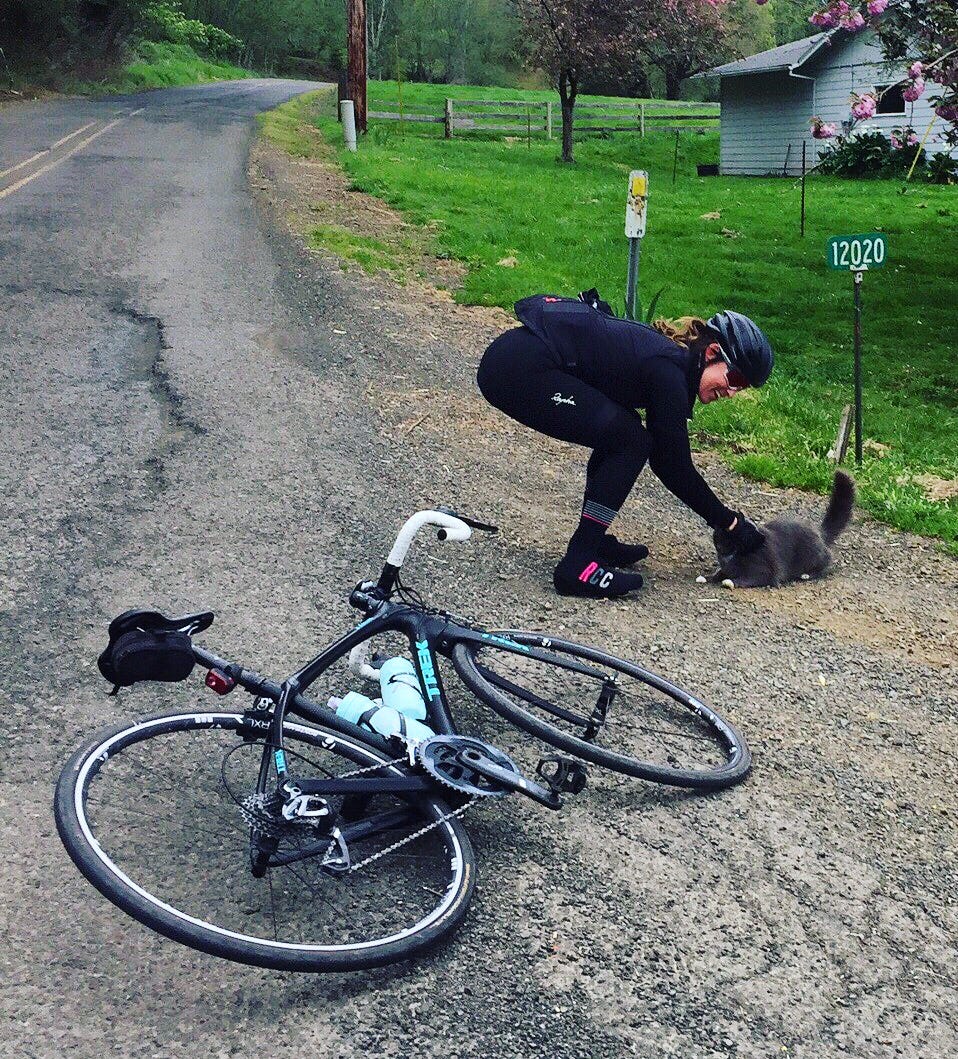
In March 2015, I found the therapist that would change my life. She was the fourth one I tried. Through all the issues we worked through, she kept asking one question: “if writing is what you love, why do you spend all your time riding?” It was easy to answer. Riding, when I could do it my way, was a way to quiet my mind, like giving a dog a bone to distract itself. Writing is not that. So when I found myself doing both last week, intertwined, I noticed.
Last week I was in southern Utah on a multi-day mountain biking trip. A friend, the same friend who used to run the ambassador program I had been a part of, asked me last year if I would be interested in doing a 4-day bike-packing trip on mountain bikes from Brian Head, Utah to Escalante. I very badly wanted to say no. At the same time, I very badly wanted to be better at mountain biking. I said yes, pushed it from my mind, and hoped by the time it came around, I would be ready.
When we moved here, I was riding less than 50 miles a week, down from the 200 miles per week I’d been riding in 2014. I felt distant from the bike, but I was still by all accounts a serious cyclist. I wasn’t fast, I couldn’t win any races, but I knew what I was doing. I was more comfortable on a road bike than I was anywhere else. But there’s essentially one paved road here — the main highway. Compared to LA, which I would argue is some of the best cycling in America, this place just didn’t hold a candle. But what it did have was trails. I thought back to my old hardtail I’d so quickly moved on from in Boulder, and I got a mountain bike.
My god was I bad at it. It felt like I’d gone from riding a pony at the state fair, forever circling the same grass, to an actual mustang. I could not stay on this bike. It bucked and it reared and it laughed at me while I smacked into trees and roots and rocks and creeks and even smooth uncomplicated gravel. It was embarrassing, and I was not going to tolerate it. I became relentless in my drive to get better.
I put in the time, I went to a clinic, I got a pass to the bike park, I tried features over and over, I asked other mountain bikers for their phone numbers over and over, and by the time the hut-to-hut trip came around a year later, I had no choice but to just hope I’d learned enough. That I was strong enough. Competent enough. Brave enough.
Thirty miles on a road bike feels like nothing. It’s a couple hours of smooth sailing. Thirty miles on a mountain bike can feel a lot different. You’re using your entire body, making micro adjustments over every rock and root, through every patch of loose gravel and thick sand. On day three, I dumped my bag at the end of the ride, trying to find a pair of socks I knew I’d stuffed in there. I found the socks, but I also found something else. In a crumpled sandwich bag, trapped under a bulky hem was one Xanax, the size of a single Nerd candy, a pill I’d once clutched like it was my only tether to reality. Now, it sat neglected, a relic of a mind gone by.
Whatever my reticence was for this trip, it wasn’t my mind. I was afraid I would slow people down, I was afraid I wouldn’t be able to ride the technical parts, I was afraid I would crack physically after pushing my body harder than I had in years, but I wasn’t afraid I would crack mentally. I hadn’t even thought to pack Xanax. I can’t remember the last time I had a panic attack. I can’t remember it.
The crux of Panic Disorder is not that you’re afraid of flying or social events or failure or what have you, it’s that you’re afraid of having another panic attack. You’re afraid the next one will be the one you don’t come back from, the one you don’t survive. I don’t have Panic Disorder anymore. I still have fears. I still have worries. I still have issues. But I can head into the backcountry, I can pack my bag for a ride through the wilderness, I can chase a physical feat I’m not sure I’m capable of, and I can do all those without being afraid of myself.
This past week was World Mental Health Day, and I forgot. For years and years I’ve posted about my struggles with my mind, but this year I forgot. And what a beautiful thing to forget.
Having passed a year of living here, people have started asking if I miss LA. I don’t know that I see the past through locations, so much as I see it through versions of myself. When I first moved to LA, I was broken. I had found a piece of hope through bikes that introduced me to countless friends, beautiful places, and an enviable number of pastries. I miss those things, but I don’t miss LA, because I don’t miss who I was when I moved there.
From New York City to downtown Boulder to a shack in Topanga to a cabin in the big mountains, my homes have become more expansive in their environments because I am seeking that expanse in myself. When I walk out my door, in less than three minutes, I can be in the actual wilderness. Not in a park, not in a patch of woods, but in big, sprawling nature. This idea used to scare me. I wanted to cage myself so there would always be keepers nearby, someone to save me, to at least try. But I didn’t need saving. I just needed a little help.
If you’re ever in the trenches of your mind, I want you to know I’ve been there in mine. And if you just need to tell someone how scary it is, I’m here.
Mental health issues are not a frailty of character. They’re not a weakness. They’re not shameful. They’re just shit we have to work through, and my god is it easier when we work through them together. Thanks to some of the women who helped me.
I got here with all of you.


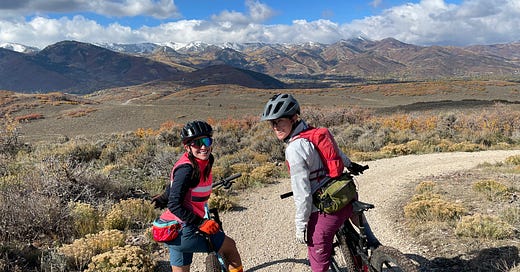



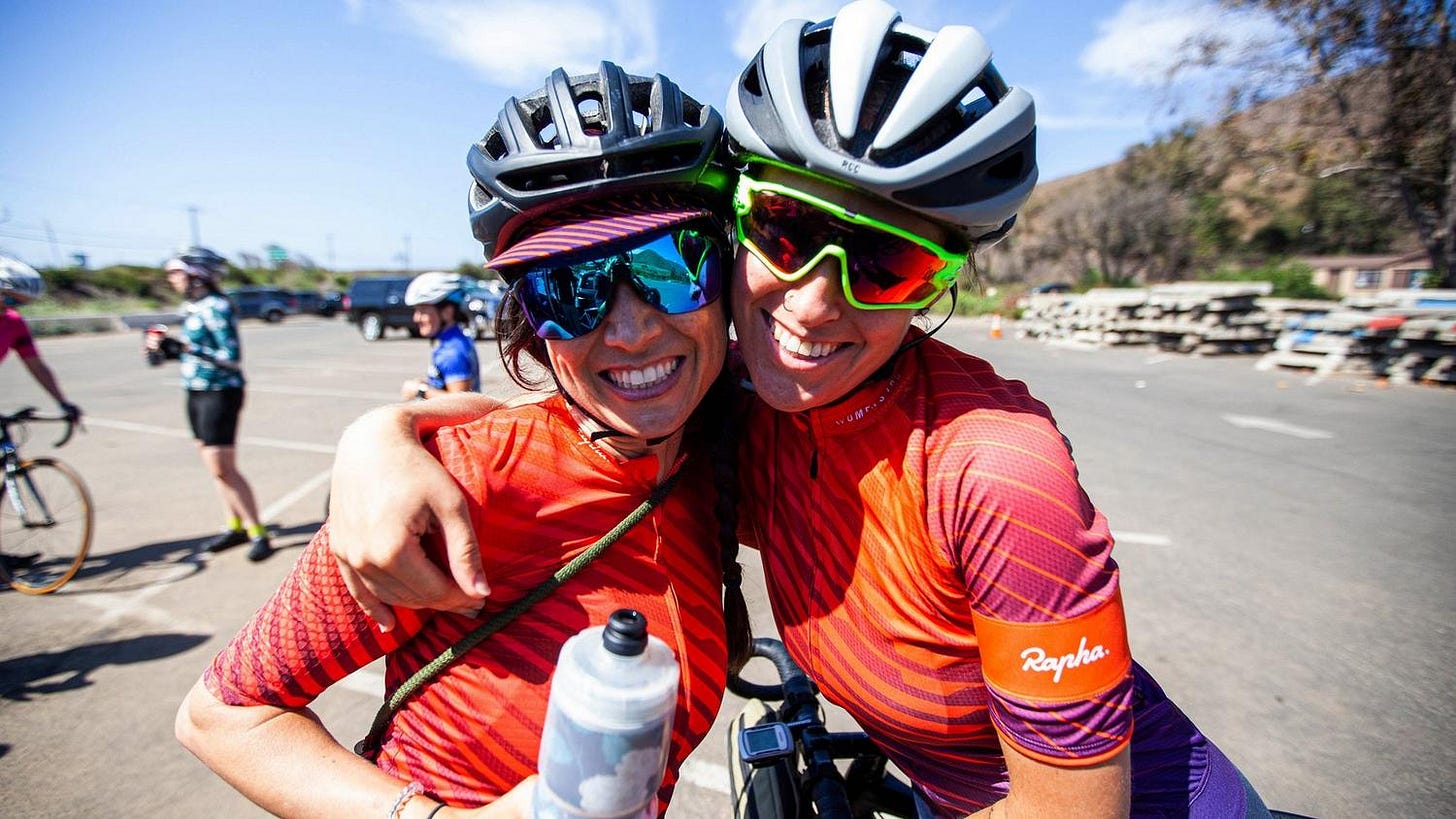
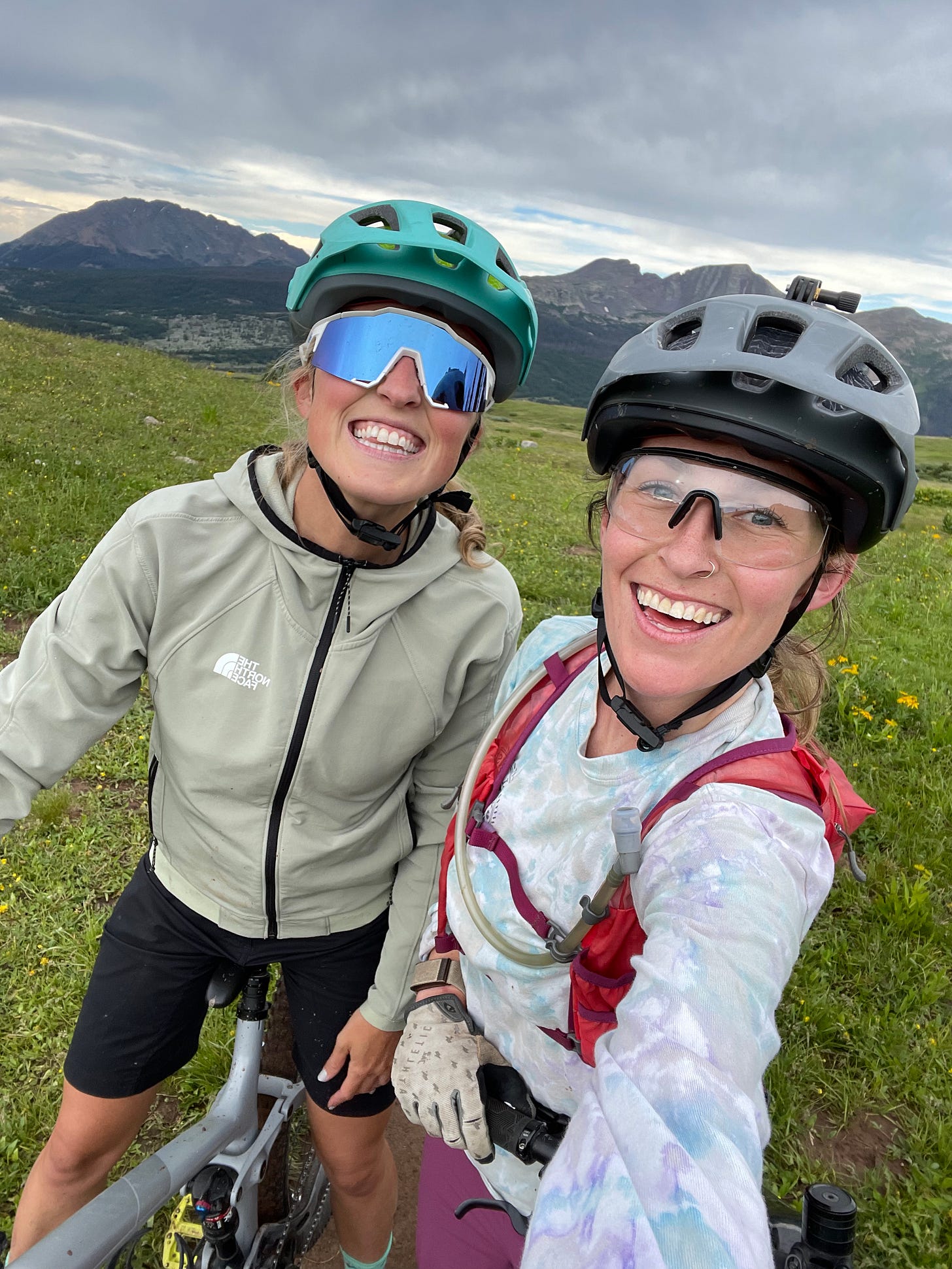
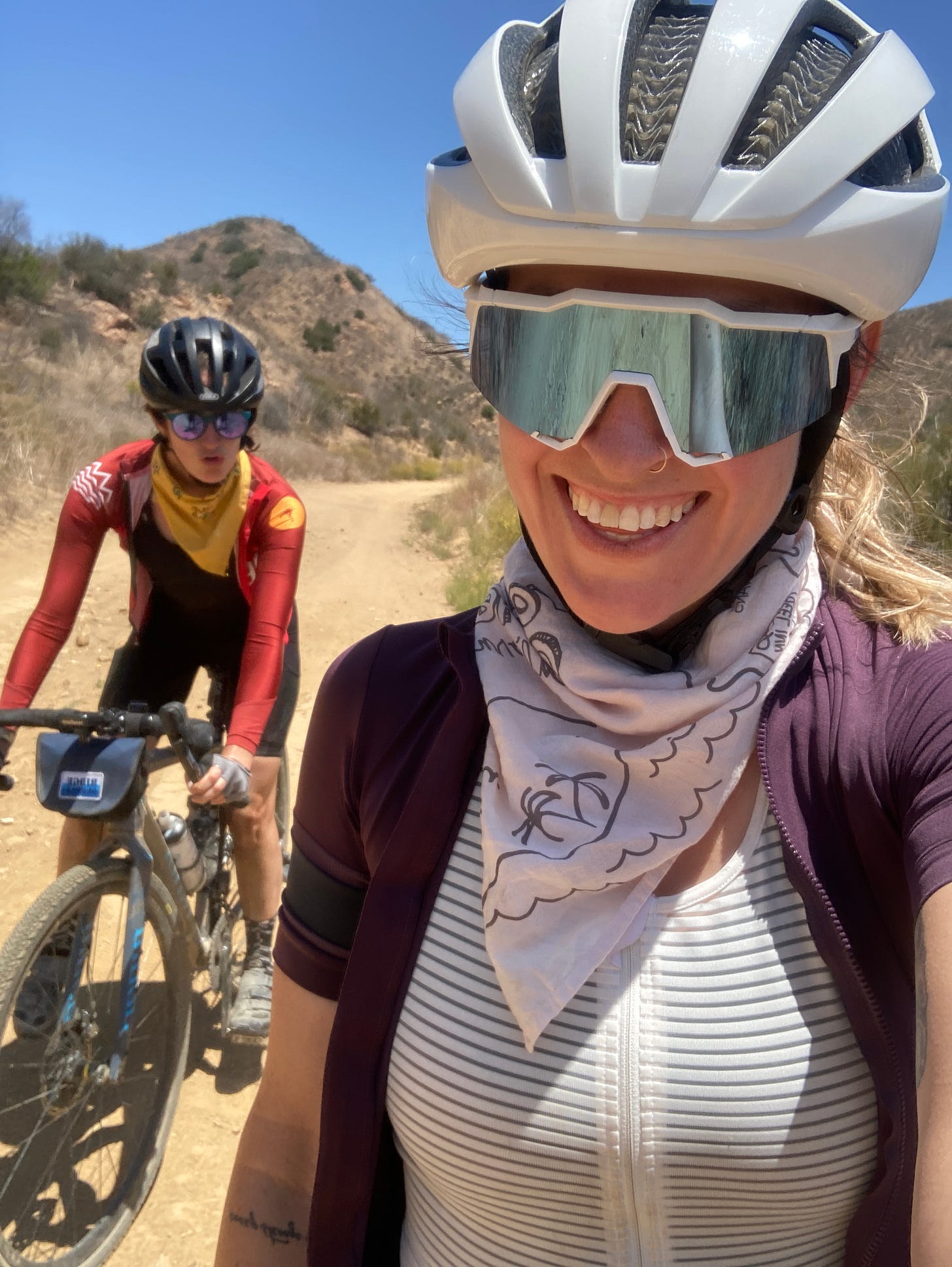
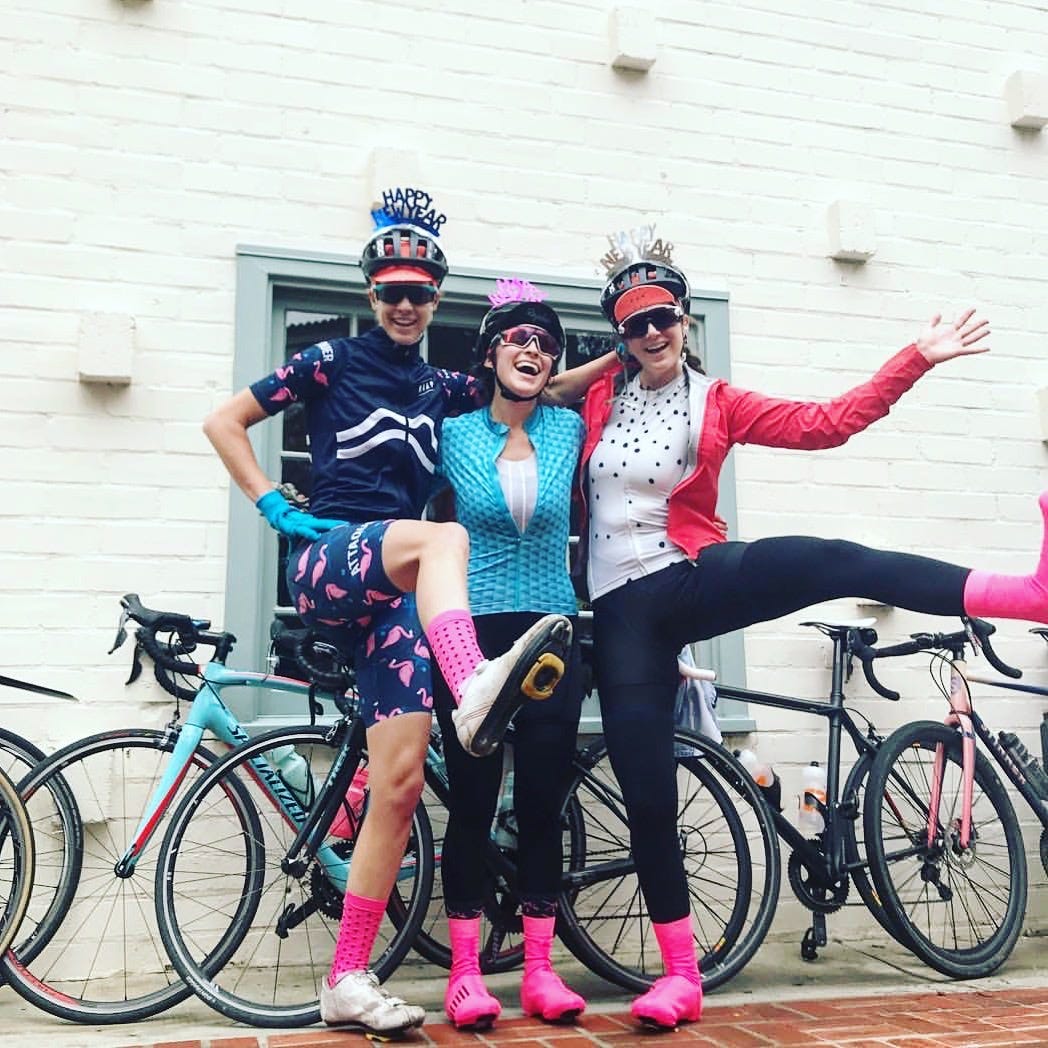
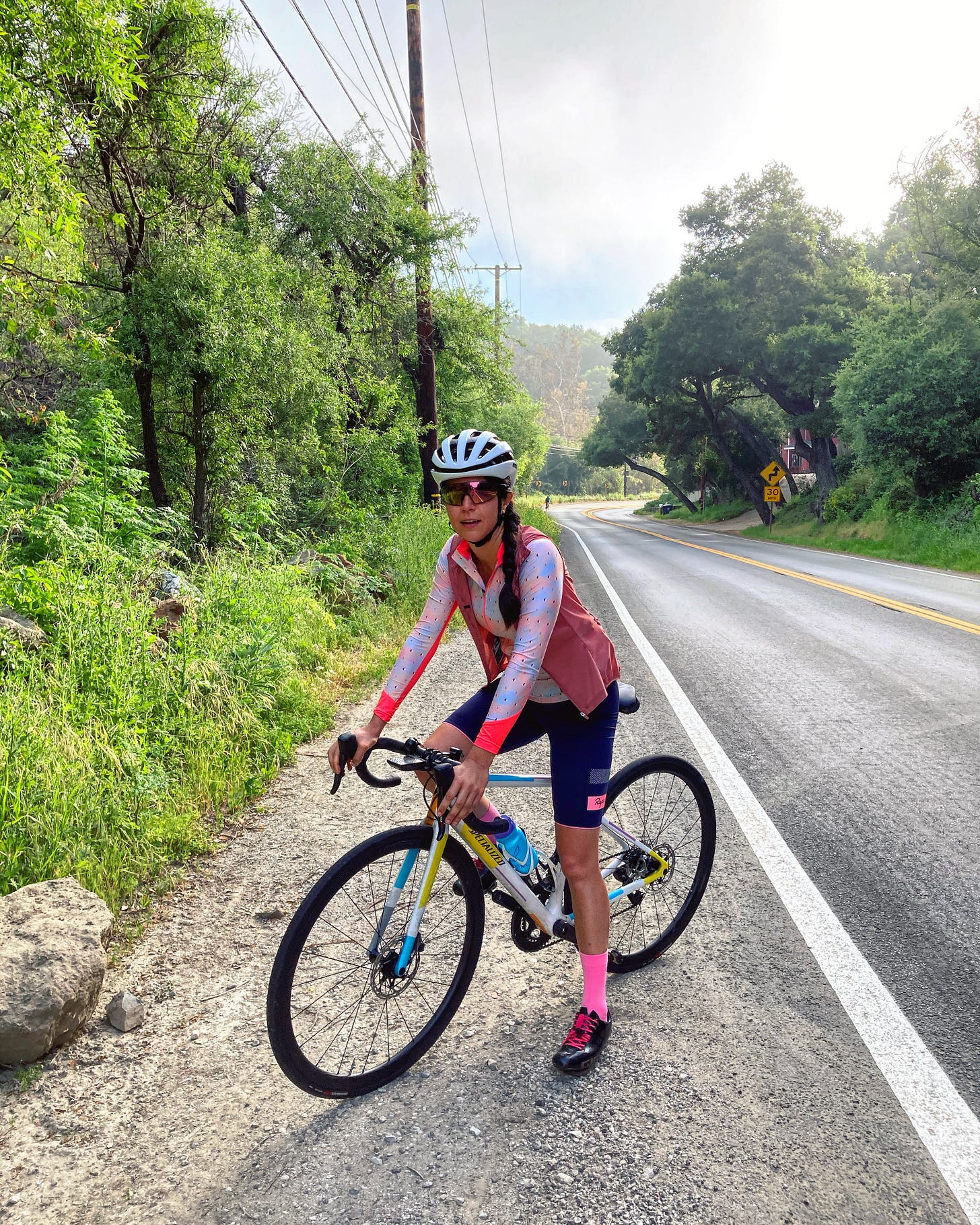
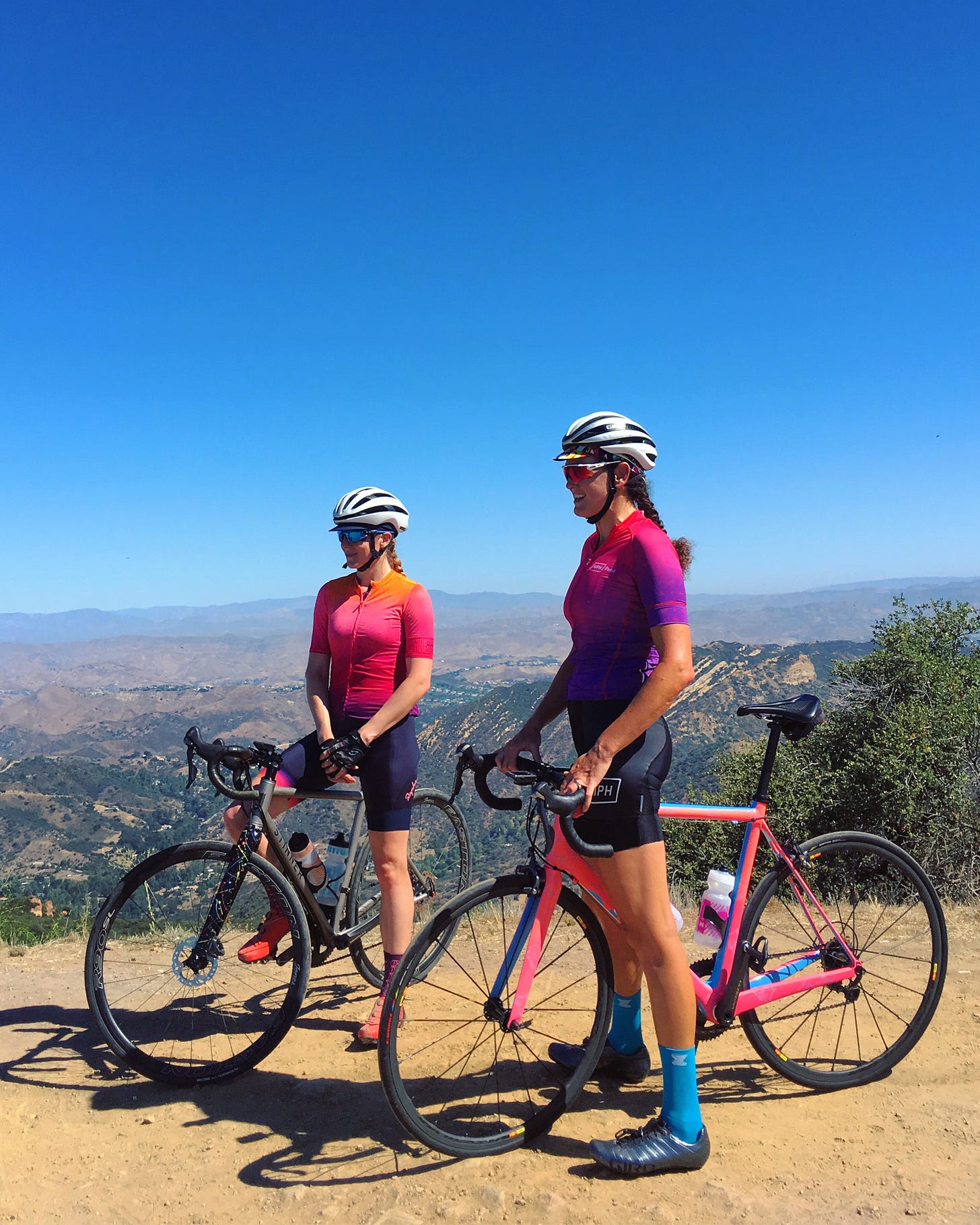
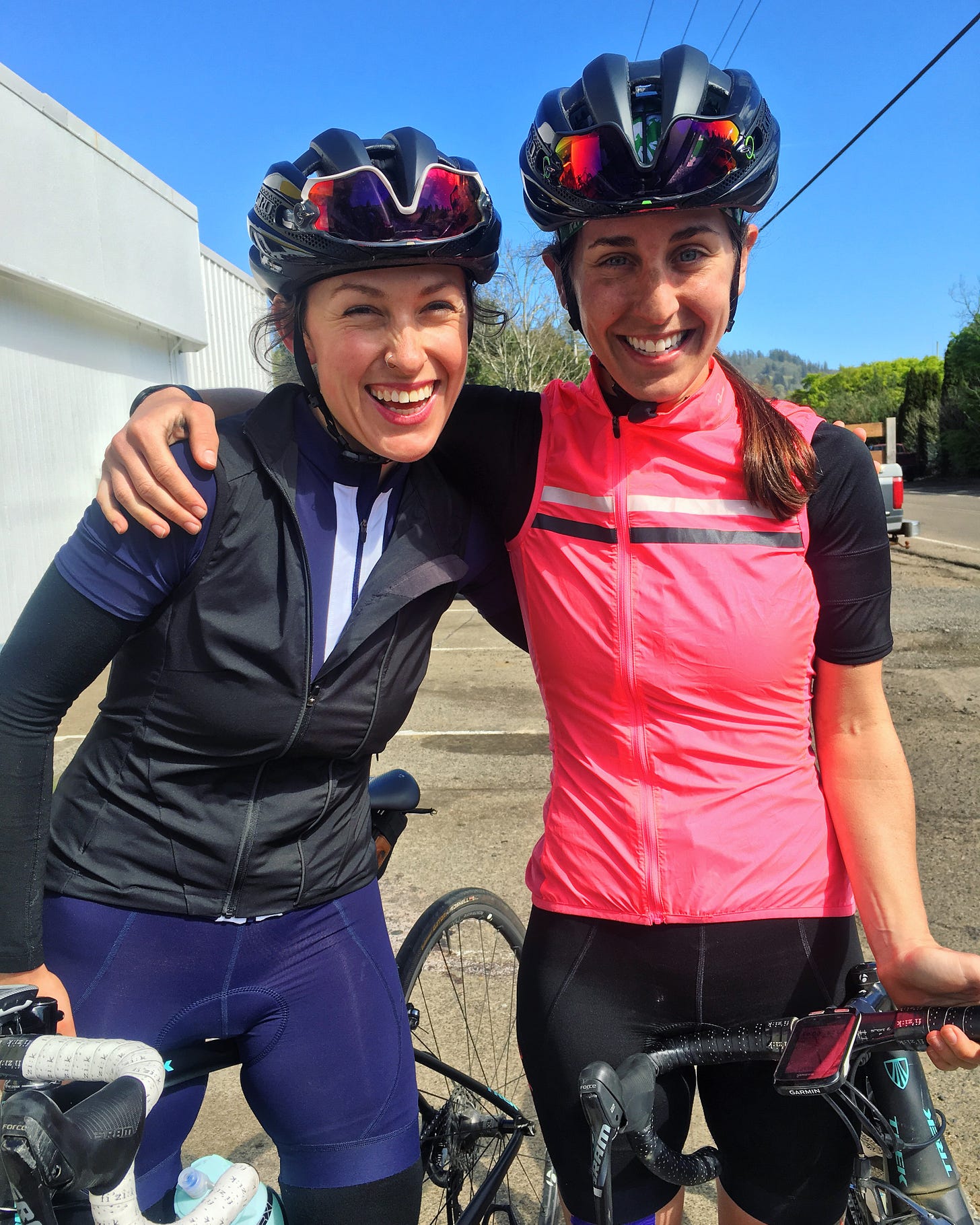
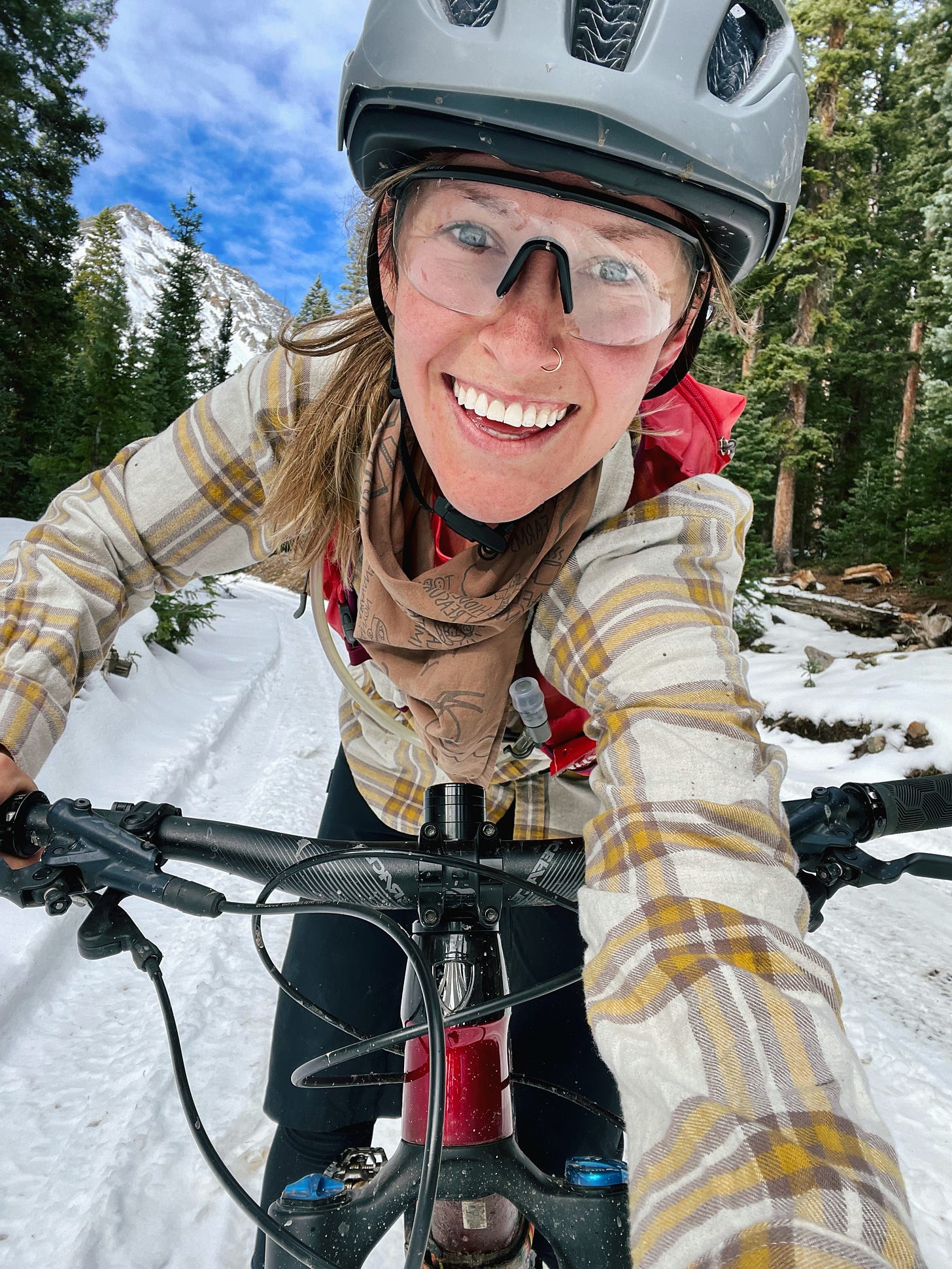
YES: "my homes have become more expansive in their environments because I am seeking that expanse in myself."
I've been trying to explain why I went from a hardcore city-lover (still am, honestly) to someone who knows the names of birds, plants, trees. I've let myself become quiet enough to listen rather than fill up the space with my own thoughts.
Thanks as ever for this.
Nice post for so many reasons!! I suffered from anxiety attacks in my early to mid thirties, and you are correct, the key to change was when I began to understand that my anxiety attack was my body's way of showing me in a very impressive way that "things needed to change." I'm sure she sent some much gentler reminders before my first anxiety attack that I totally ignored, ha! Our bodies are amazing, so much to be grateful for! Thanks for sharing your story. 💟